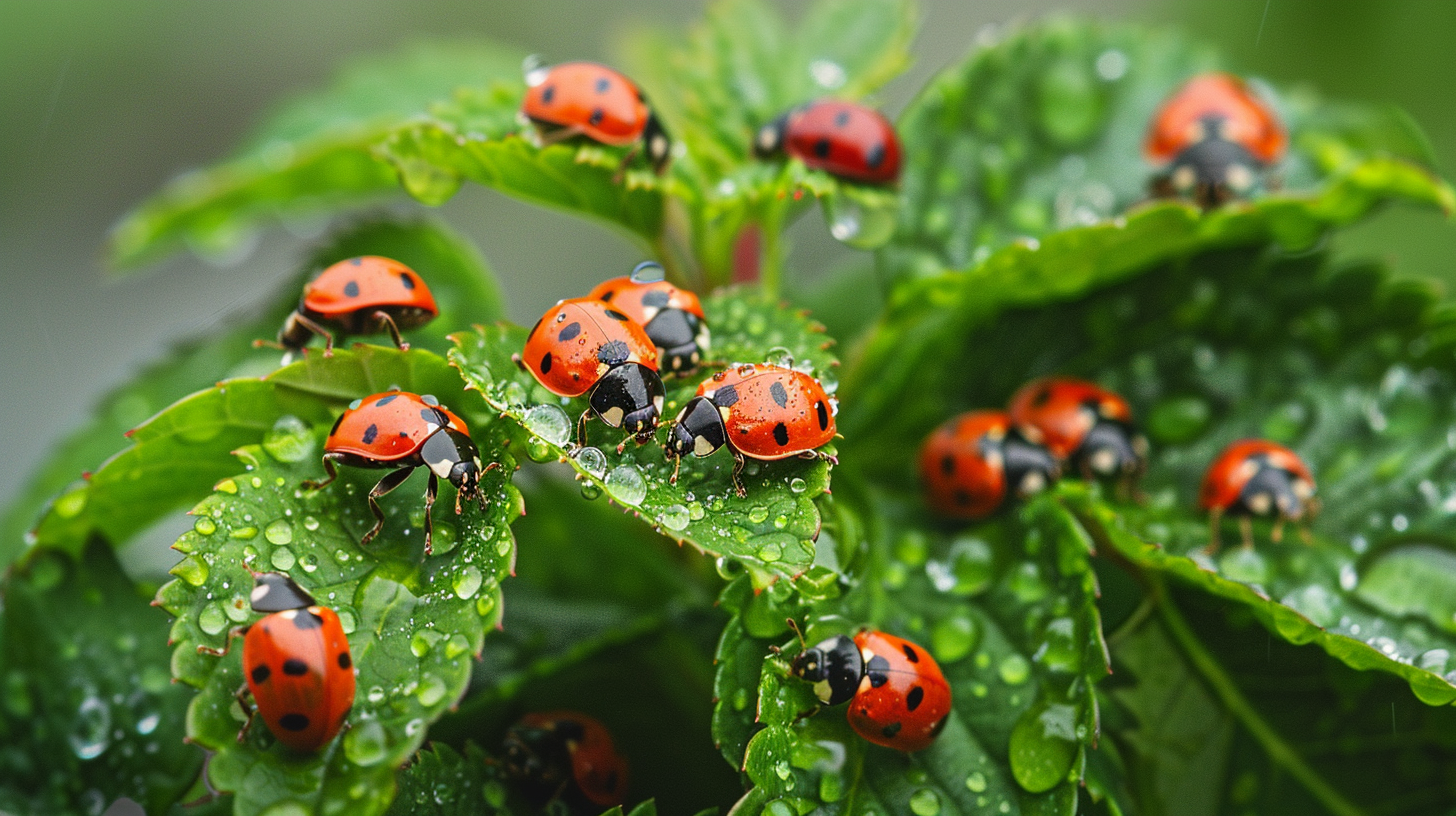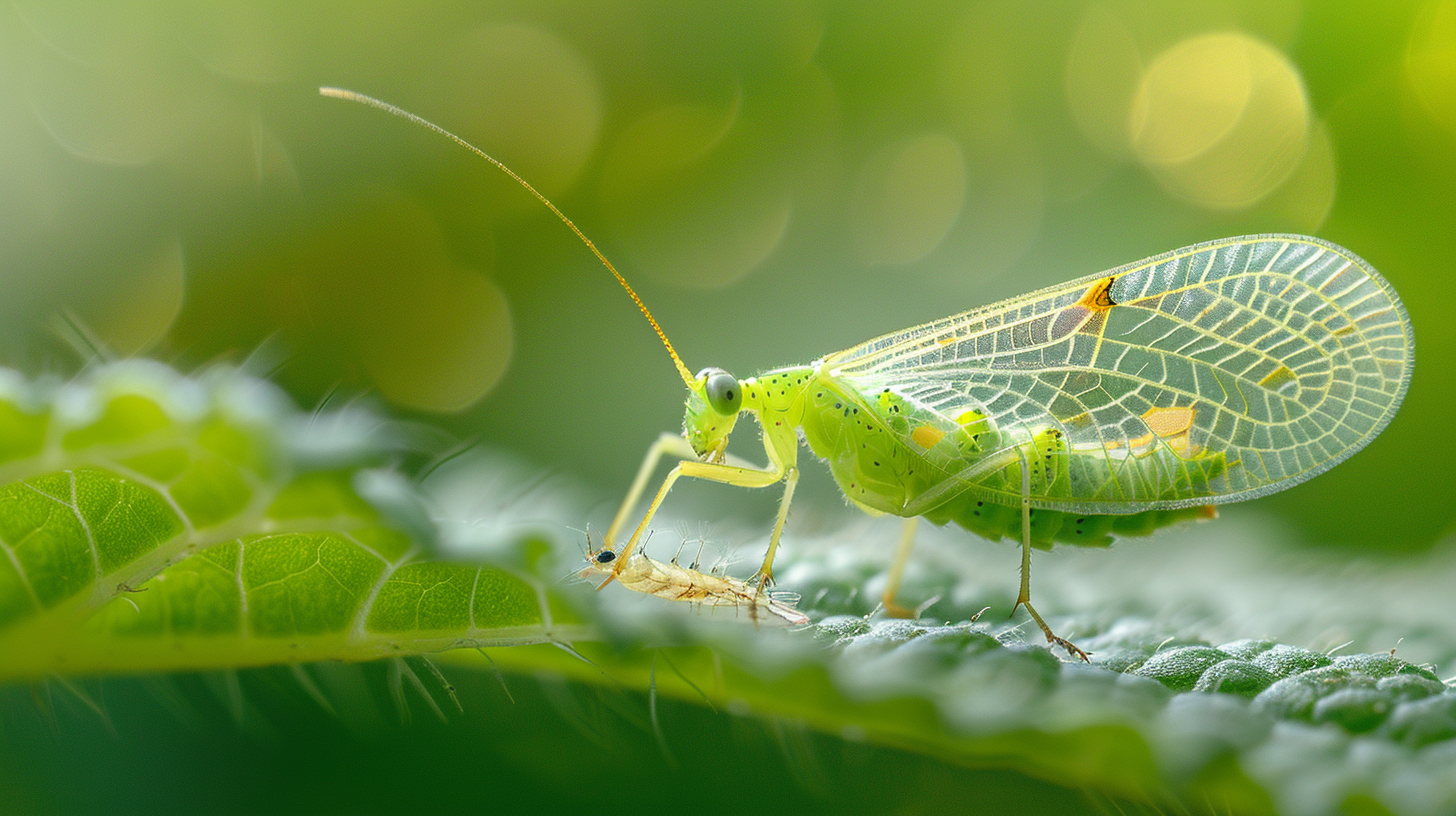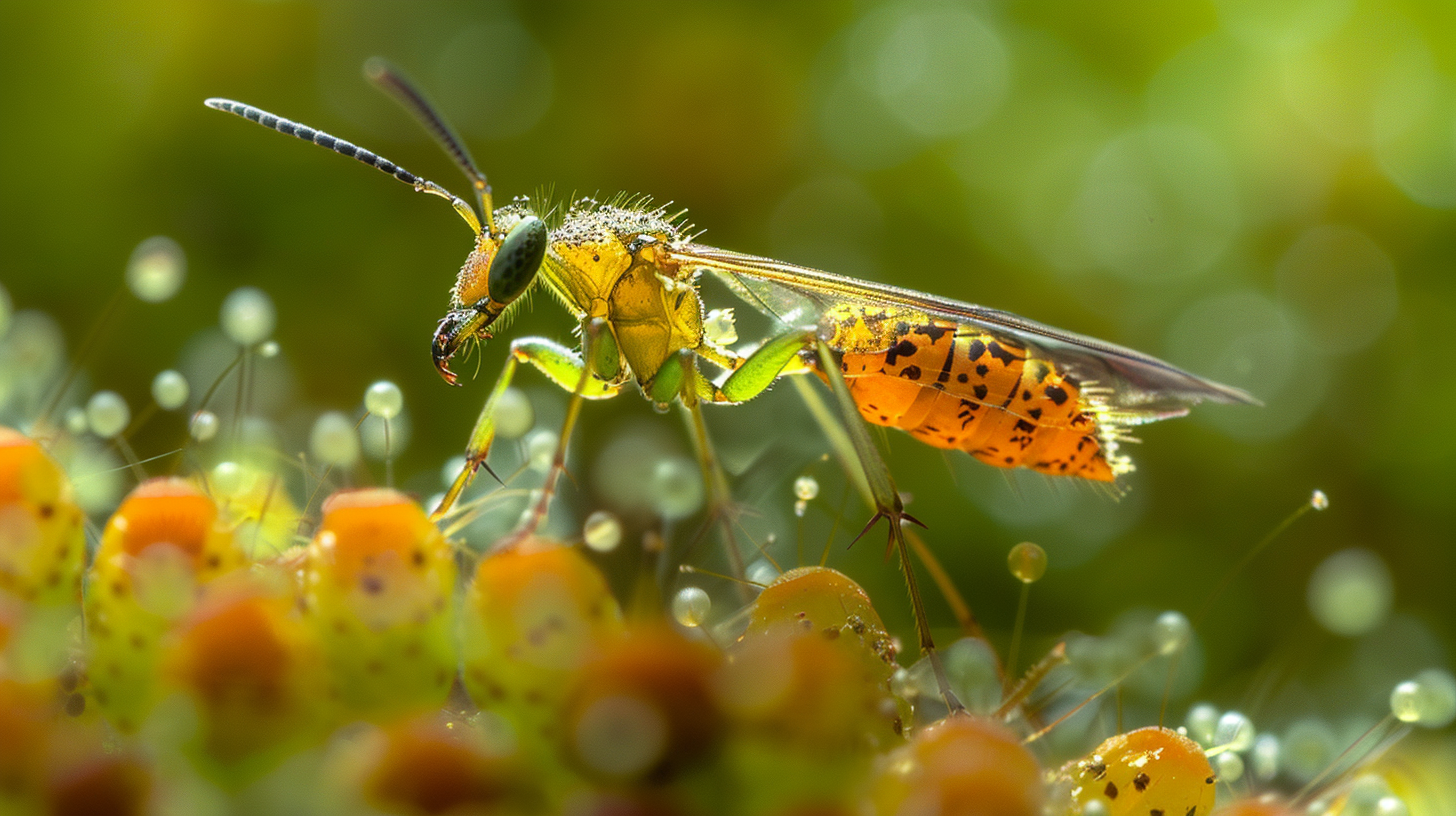Harnessing the Power of Nature: Beneficial Insects as Natural Predators
Introduction
In the intricate dance of the garden ecosystem, nature provides us with allies in the form of beneficial insects. These tiny warriors, armed with voracious appetites and a penchant for pest control, play a vital role in maintaining the delicate balance between predator and prey. In this article, we'll explore the world of beneficial insects and discover how they can serve as natural predators to protect our plants from common garden pests.
Section 1: Ladybugs - Guardians of the Garden

Ladybugs are perhaps the most iconic of all beneficial insects, with their vibrant red wings adorned with black spots. These charming beetles are voracious predators of aphids, consuming hundreds of these pesky pests in their lifetime. By introducing ladybugs into your garden, you can harness their appetite for aphids and keep these destructive insects in check.
Section 2: Lacewings - Masters of the Hunt

Lacewings may be delicate in appearance, but don't let their ethereal wings fool you - these insects are fierce predators in the garden. With their voracious appetite for aphids, mites, and other soft-bodied pests, lacewings are valuable allies in the fight against garden pests.
Section 3: Parasitic Wasps - Silent Assassins

Parasitic wasps may not be as charismatic as ladybugs or lacewings, but don't underestimate their prowess as garden guardians. These stealthy insects lay their eggs inside the bodies of pest insects, effectively turning them into living nurseries for their offspring.
Parasitic wasps, while effective natural predators for controlling certain garden pests, may indeed have an impact on bees, particularly solitary bees and some native bee species. Some parasitic wasps may target bee larvae as hosts for their own eggs, potentially reducing bee populations in specific environments.
However, it's important to note that not all parasitic wasps are harmful to bees, and many species have evolved to target specific pest insects without posing a significant threat to beneficial pollinators like bees. Additionally, maintaining a diverse and balanced ecosystem in the garden can help mitigate potential negative impacts on bee populations by providing a variety of habitats and food sources for both beneficial insects and pollinators.
When considering natural pest control methods involving parasitic wasps, it's crucial to assess the potential risks and benefits and to implement strategies that prioritize the overall health and biodiversity of the garden ecosystem, including the well-being of bees and other pollinators.
Conclusion: In the intricate tapestry of the garden ecosystem, beneficial insects serve as invaluable allies in the fight against garden pests. From ladybugs and lacewings to parasitic wasps, these natural predators play a vital role in maintaining the delicate balance between predator and prey. By embracing the power of nature and encouraging beneficial insects to inhabit our gardens, we can create thriving ecosystems where plants flourish and pests are kept in check.
